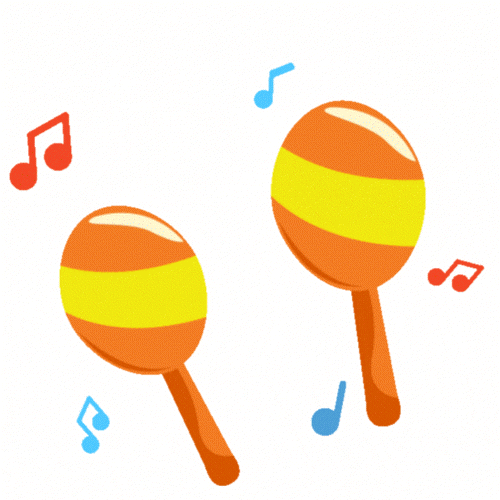Theme: Growing Through the Arts
Preschoolers
by LearnX Arts


Art is important for early childhood development as they foster creativity, enhance cognitive abilities, promote emotional expression, and encourage fine motor skills. Engaging in artistic activities can help children develop critical thinking, problem-solving skills, and social-emotional intelligence.

For 0 to 3-year-olds

Colour Gallery
By: Isabel Otter & Sophie Ledesma
Publisher: London: Little Tiger, 2023
Section: Early Literacy Concepts
Call No.: English OTT

Let’s Make Music
By: Alexandra Penfold & Suzanne Kaufman
Publisher: New York: Random House Children's Books, 2024
Section: Early Literacy Poetry & Rhymes
Call No.: English PEN
For 4 to 6-year-olds

Brian the Dancing Lion
By: Tom Tinn-Disbury
Publisher: North Mankato, Minnesota: Capstone Editions, an imprint of Capstone, 2022
Section: Early Literacy Picture Books
Call No.: English TIN

Benford Draws a Blank
By: Danielle Dufayet & Katia Klein
Publisher: North Mankato, Minnesota: Capstone Editions, an imprint of Capstone, 2023
Section: Early Literacy Picture Books
Call No.: English DUF

Fun with Playdough
Playdough is a great sensory toy that sparks creativity in young children. As your child pokes, rolls, and shapes the playdough, their hand muscles strengthen, developing their fine motor skills. You can enhance their play by providing items such as cookie cutters, plastic cutlery, and old rubber stamps for cutting shapes and making imprints on the playdough. Using different tools to manipulate the dough also aids in your child’s hand-eye coordination.

Playdough can be found easily in many children’s toystores. Alternatively, you can make some at home! Try this simple salt-free playdough recipe with your little one.
Ingredients
2 cups of flour
½ cup of water
3 tbsp of oil
Food colouring
Directions
1. Mix the flour, water, and oil into a bowl.
2. Knead in food colouring.
Encourage your child to choose their own colours for their playdough. Be sure to wear an apron and a pair of gloves as food colouring stains easily!
Crafty Music Shakers
Listening to a cheerful song can instantly boost your energy, and it is no different for children! Music has a profound effect on our emotions. Upbeat tunes can enhance happiness, while relaxing melodies can soothe the mood. Music is also a great way to get your child moving! Dancing helps develop gross motor skills, and playing with instruments like shakers and maracas enhances fine motor skills. Moreover, the repetition of words and rhythms in music strengthens memory skills.

Create your own paper plate shaker with your child! Grab a paper plate and fold it in half. Seal the edges with some tape, making sure to leave an opening at the top of about 5cm. Fill the pocket with some dried beans or rice grains, and seal the opening with more tape. Have your child decorate the shaker with drawing materials such as markers and crayons. Put on your child’s favourite nursery rhyme and shake along to the beat!

-
Be encouraging towards your little artist! When drawing together, express interest in your child’s artwork and ask your child open-ended questions like “Why did you choose these colours?” or “How did you feel when drawing this?”. This helps to expand their creativity and imagination.
-
Read picture books with different art styles and illustration mediums, such as collage, watercolour, or photography. By exposing your child to different artforms, they can develop a deeper appreciation for diversity while also encouraging curiosity.

Playlist: Move It and Groove It!
How Art Benefits Children
Video duration: 5:56
An artist educator presents the benefits of art to children's minds, bodies and emotions.
Why Music Is Important for Early Childhood Development
Video duration: 4:58
Listening/playing music and singing are more than just enjoyable activities, these activities are helping to shape a baby - their mind, body and the way they see the world. The video shares about the top five benefits of music and singing for early childhood development.
-
References
References:
-
The benefits of playdough in early learning and childcare. https://try.discoverchildcare.co.nz/2023/02/the-benefits-of-playdough-in-early-learning-and-childcare/
-
Effects of Music on Child Development: 9 positive effects. (n.d.). Children Central. https://childrencentral.net/what-are-the-effects-of-music-on-child-development/
-
The many benefits of music. (n.d.). Early Childhood Education and Care. https://earlychildhood.qld.gov.au/early-years/early-learning-at-home/encourage/the-many-benefits-of-music
-
Mason, B. (2023, May 15). How parents can teach art literacy at home. Golden Road Arts. https://www.goldenroadarts.org/art-resources/how-parents-can-teach-art-literacy/
-
Sciopic. (2016, February 27). How art benefits children [Video]. YouTube. https://www.youtube.com/watch?v=FraV5xQiKfs
-
- Divya -. (2019, May 16). Why music is important for early childhood development [Video]. YouTube. https://www.youtube.com/watch?v=E8ww__gVTA0
-